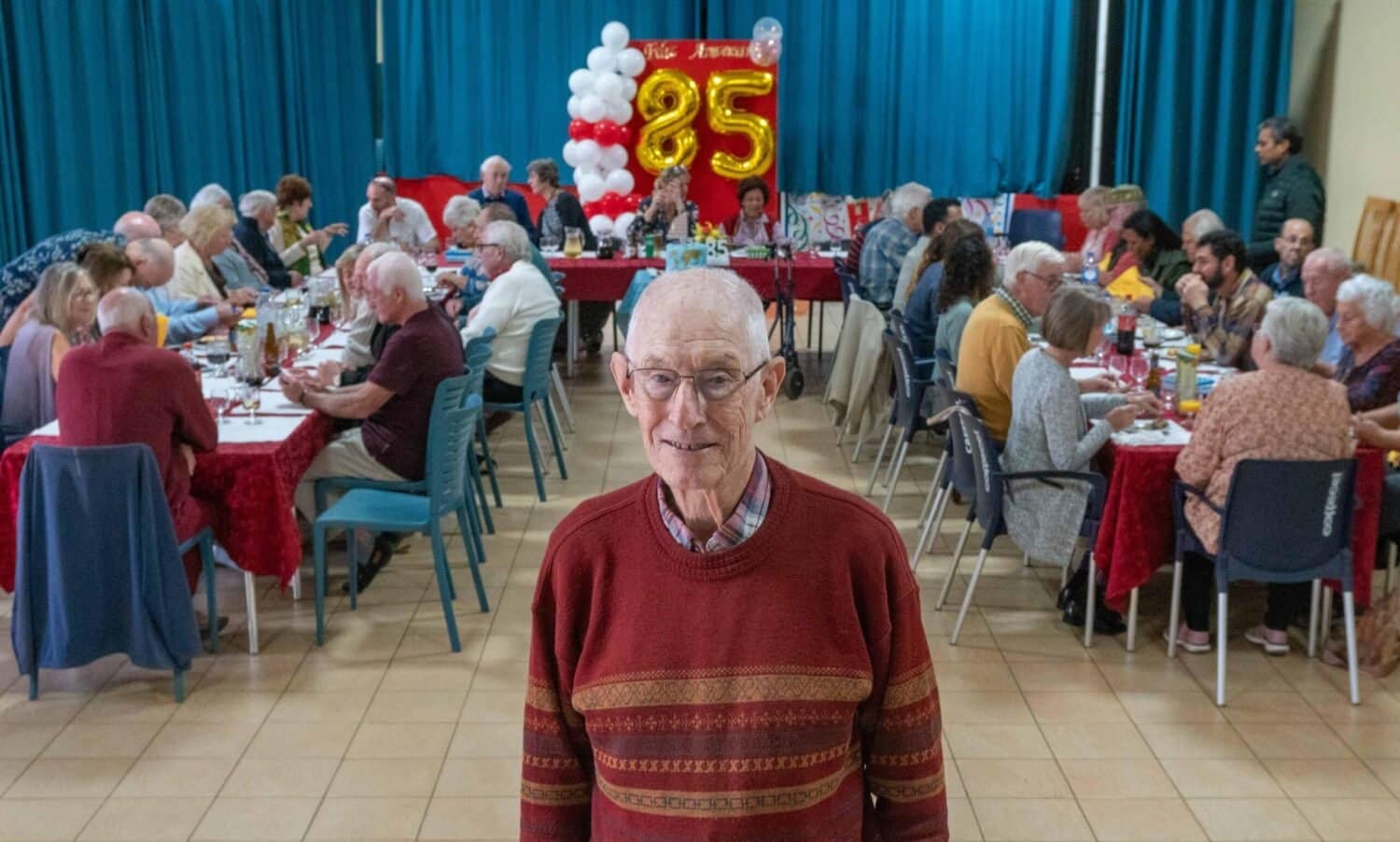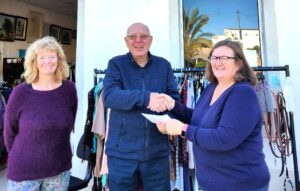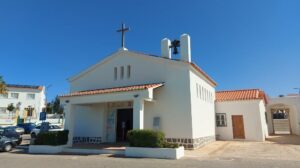Andrew Firebrace enjoys life in a small Portuguese village
Any day, you just might be surprised by talking to one of your neighbors. Well, I live in a small village, Amorosa (São Bartolomeu de Messines), where people get to know each other, somewhat. We all have a story to tell, some talking more than others, and all the stories are special. One or two of the stories, however, may stand out as being above all the rest, into the realm of spectacular.
A few years ago, when I first caught a glimpse of Andrew Firebrace in the village, his tall, lanky figure went whizzing by. As time went on, we might converge briefly, exchange a few words, and then he would scurry off. This scenario has been repeated often for the few years I’ve known him. This Englishman is always on the move, with a sense of purpose.

I learned early on that he is a gourmet cook known for hosting a weekly, festive Sunday lunch. Also, he and I have discussed birdwatching as a shared passion, but he is far more advanced than I. He even travels to distant lands to see exotic wild birds. But here’s the zinger: he has crossed the Atlantic Ocean several times in a 40-foot sailboat, and even single-handedly.
There he was, in the middle of the vast ocean, nothing but waves and sky, all alone. For 25 days, he manned the small watercraft, guiding her 3200 nautical miles (almost 3700 land miles), starting from New York and ending in Lagos, Portugal.
A difficult and risky undertaking that I, for one, would never consider. Just think of all the dangers. Firstly, a powerful storm could pop up, tossing the little boat about like a cork in a bathtub. The vessel could be entirely swamped. If it was on the verge of sinking, there was an emergency life raft equipped with a radio beacon announcing your position for a possible rescue.
To be aware of a storm brewing, you listen to your radio every hour. You must, however, conserve electricity, which is needed for your radio, lights, and radar. If you use too much electricity, you will simply run out. A large ship could suddenly appear and collide with you, so you must be constantly on the lookout.
At night, you cannot sleep because an oncoming ship could approach without warning. During the day, you can only take short naps and are woken by an alarm clock every 20 minutes. Then you scan the horizon for ship traffic. You have a radar warning system, but it uses more electricity than you can produce, so you don’t use the radar very much. Your body is harnessed while moving around the boat for fear of falling overboard.
You mostly eat cold food from tins, but sometimes you catch a fish on the line you cast. To cook the fish in your galley, you are harnessed in front of a self-leveling stove, so you and the food can manage in the constant pitching and rolling of the boat. “One day, some debris was caught on my rudder, and I couldn’t steer the boat. I had to harness myself to a rope and dive under the boat to clear the debris,” Andrew recalled. “I wasn’t worried about drowning or being lost at sea, but I was worried about sharks.”
Obviously, the maneuver was successful and, 20 years later, he can laugh about it. “You should never get scared. If you do, you will lose the ability to think straight. Lots of things can go wrong on a boat, and you have to be very alert and calm.” There must be an awesome splendor to it that most of us will never experience.
“There were surprises, like a pod of dolphins or whales would come along. Even some birds would be far out at sea,” he recalled. “There were sometimes flying fish fleeing dolphins and landing on board. They made a nice dinner for me.”
When I asked Andrew “why” such a sailing voyage, he said “because it’s there”. It must be in his blood. He tells me that his mother was born on a wooden battleship, and his great-great-grandfather was captain of a ship in the battle of Trafalgar. There aren’t many of us who would cross the Atlantic alone in a sailboat.
Recently, Andrew did another thing I wouldn’t do (if I’m still around). He threw himself an 85th birthday party with 60 guests. And he did most of the cooking! The birthday bash was held in the village community center (Sociedade). With a little help from his friends, he took care of all the arrangements.
I wondered why Andrew would decide to retire in a small village in Portugal. “I’m very happy living in Portugal,” he said. “When I sailed around the British Isles and Europe, the ports in Portugal were always the friendliest. I grew fond of the Portuguese people and culture. That’s why I live here.”
Text and Photos by ERIC ROTH
|| features@portugalresident.com
Eric Roth is a lifelong photojournalist who has recently emigrated from Boston, USA to the Algarve. He loves nature and wildlife. 926 742 687 | ericrothphoto@gmail.com

























